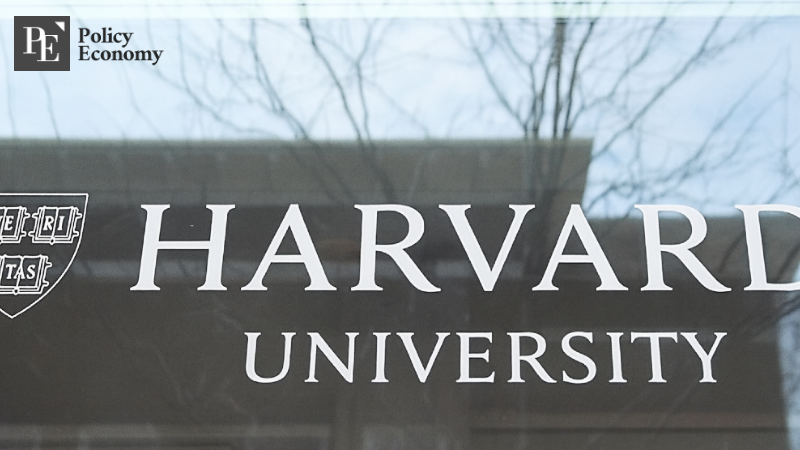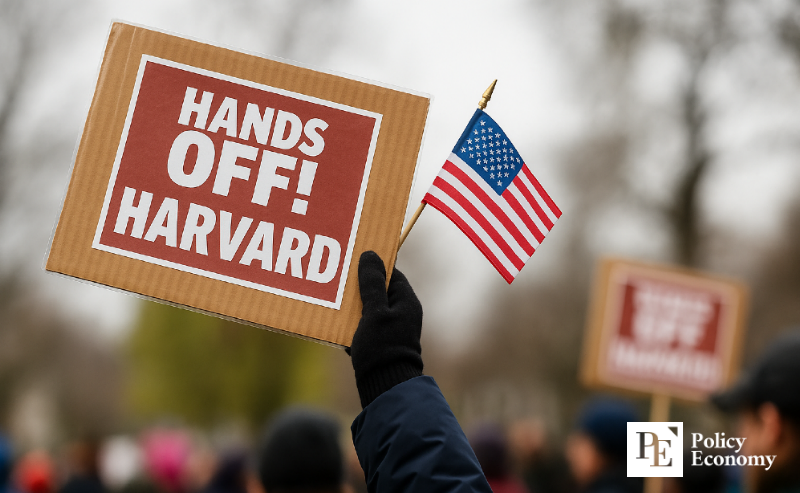U.S. Court Rules Harvard Funding Freeze Unconstitutional, Halts Trump’s ‘Elite University Clampdown’ Policy
Input
Modified
Administration froze federal support citing failure to curb antisemitism Court rules “violation of free speech, unlawful cancellation of research funding” Harvard gains leverage in future negotiations with government

A U.S. federal court has struck down the Trump administration’s suspension of federal research funding to Harvard University—an institution the White House had branded a “hotbed of leftist radicalism.” The court ruled that the administration’s invocation of “antisemitism” was little more than a pretext, declaring the measure a clear constitutional violation that infringed on academic freedom and freedom of expression. This marks the first judicial setback to the administration’s attempt to discipline elite universities through the leverage of federal funds, signaling a pivotal turning point in escalating clashes between Washington and higher education institutions.
Court Invalidates Administration’s Pretext of Antisemitism
According to Reuters on the 3rd (local time), U.S. District Judge Allison Burroughs of Massachusetts held that the Trump administration “illegally froze $2.2 billion in Harvard research grants” and ordered an immediate lifting of the freeze. She further barred the administration from suspending or rejecting future funding to the university.
In her 84-page ruling, Judge Burroughs stated that the administration’s antisemitism argument was a pretense. “It is difficult to conclude anything other than that the administration used antisemitism as a smokescreen for an ideologically motivated attack on the nation’s leading universities,” she wrote.
She added that “their actions endangered decades of research and the welfare of all who stand to benefit, while disregarding rights protected under the Constitution and federal law.” The First Amendment guarantees freedom of expression, while Title VI of the Civil Rights Act prohibits discrimination on the basis of race, color, or national origin.
Judge Burroughs also highlighted that of the 10 conditions the administration demanded Harvard meet to maintain funding, only one pertained to antisemitism. The remaining six intruded into ideological and educational domains, dictating “who Harvard could teach, whom it could admit, and what it could teach.”
Trump’s 10-Point Ultimatum: Abolish DEI, Ideological Screening of Students
Since taking office, President Trump has pledged to overhaul higher education, targeting diversity, equity and inclusion (DEI) programs criticized as “radical leftist policies.” Harvard—long established, wealthy, and influential—emerged as a prime target. The administration’s pressure campaign began in earnest last October, following Hamas’s surprise attack on Israel, when pro-Palestinian demonstrations escalated on Harvard’s campus. The White House labeled them antisemitic and launched an aggressive crackdown.
In April, the administration suspended hundreds of federal research grants, citing Harvard’s alleged failure to adequately combat antisemitism. It conditioned the resumption of funding on 10 requirements, including abolishing DEI policies, screening faculty hires and student admissions for ideological bias, and investigating academic programs accused of fostering antisemitism. DEI had been widely adopted across U.S. universities to advance minority and disadvantaged student inclusion, but Trump denounced it as “reverse discrimination.”
Harvard flatly rejected the demands. University President Alan Garber declared, “No government should dictate what a private university teaches, whom it admits, or whom it employs.” Hours later, the administration froze funds. Within a week, Harvard filed suit in federal court, arguing the action was retaliatory and unconstitutional, while publicly affirming its refusal to comply.

Escalating Pressure: Patent Rights, Foreign Students, and Tax Status
The administration’s measures intensified. In May, the Department of Homeland Security revoked Harvard’s authority to register foreign students, claiming foreign enrollment and tuition revenues were a “privilege, not a right.” Around the same time, the Treasury Department urged the IRS to revoke Harvard’s tax-exempt status.
Last month, the Commerce Department warned that it might seize Harvard’s patents, with Secretary Howard Rutnick notifying President Garber of a forthcoming investigation into alleged violations of laws and regulations tied to federally funded research.
Amid mounting pressure, Harvard appeared to partially yield ahead of the court’s ruling. In August—four months into the freeze—it renamed its DEI office the “Office of Community and Campus Life,” eliminated residential advisers for LGBTQ and low-income students, and cut ties with Palestinian universities. The institution also considered paying a $500 million settlement to restore funding.
Yet Harvard maintained a dual-track strategy, pursuing negotiations while pressing its lawsuit. The court victory has now placed the university in a stronger position. The New York Times described the ruling as “an unambiguous rebuke to the administration’s campaign to remake elite higher education by force.”
The Trump administration swiftly denounced the judgment. The Department of Education issued a statement accusing Judge Burroughs—an Obama appointee who had previously ruled in favor of Harvard’s affirmative action admissions program, later overturned by the Supreme Court—of once again siding against reform efforts, and signaled a likely appeal.
Although Harvard has safeguarded $2.2 billion in research funding for now, the conflict is far from over. The university is pursuing additional litigation over the ban on enrolling foreign students. In June, the district court temporarily blocked that measure, and the broader case remains ongoing.













